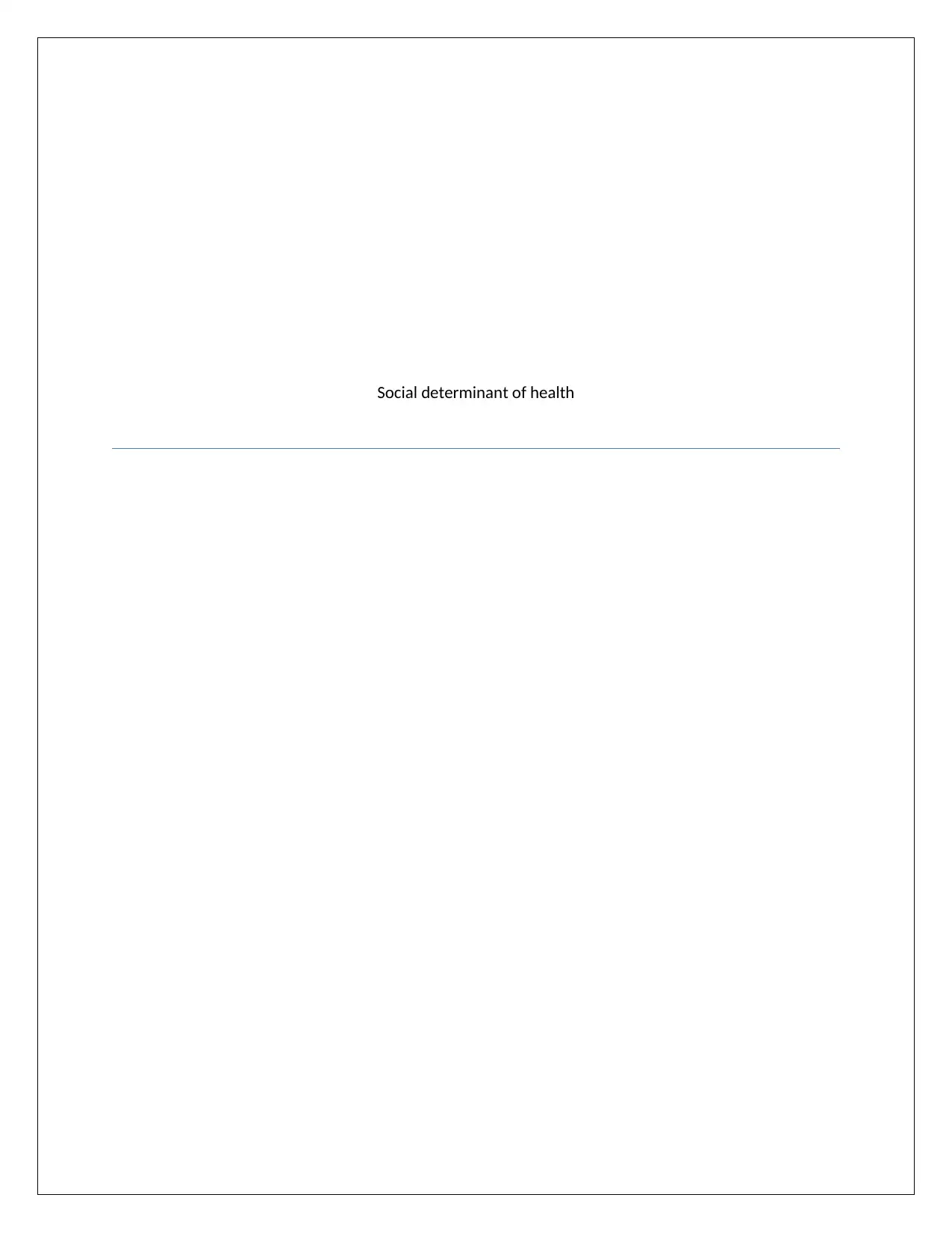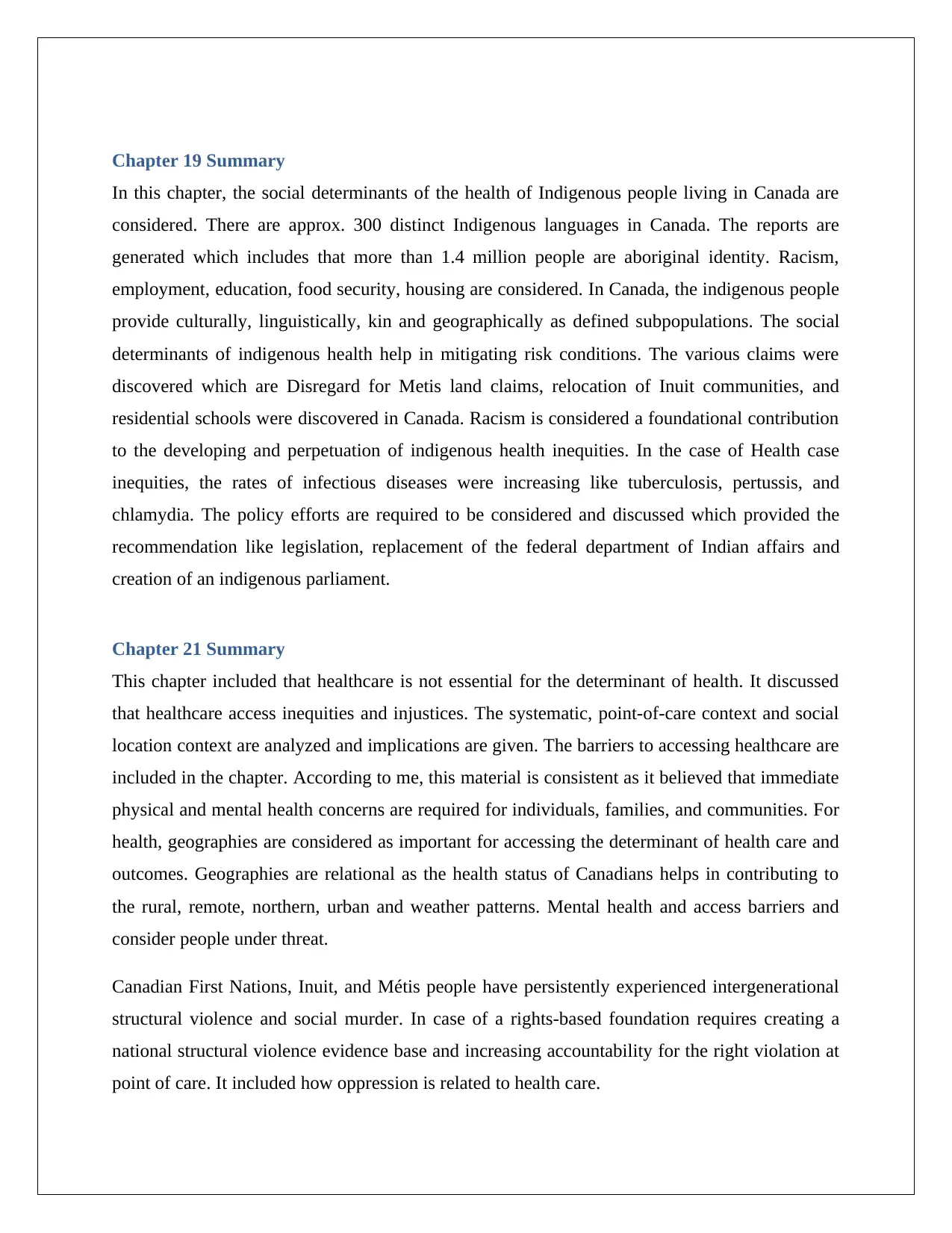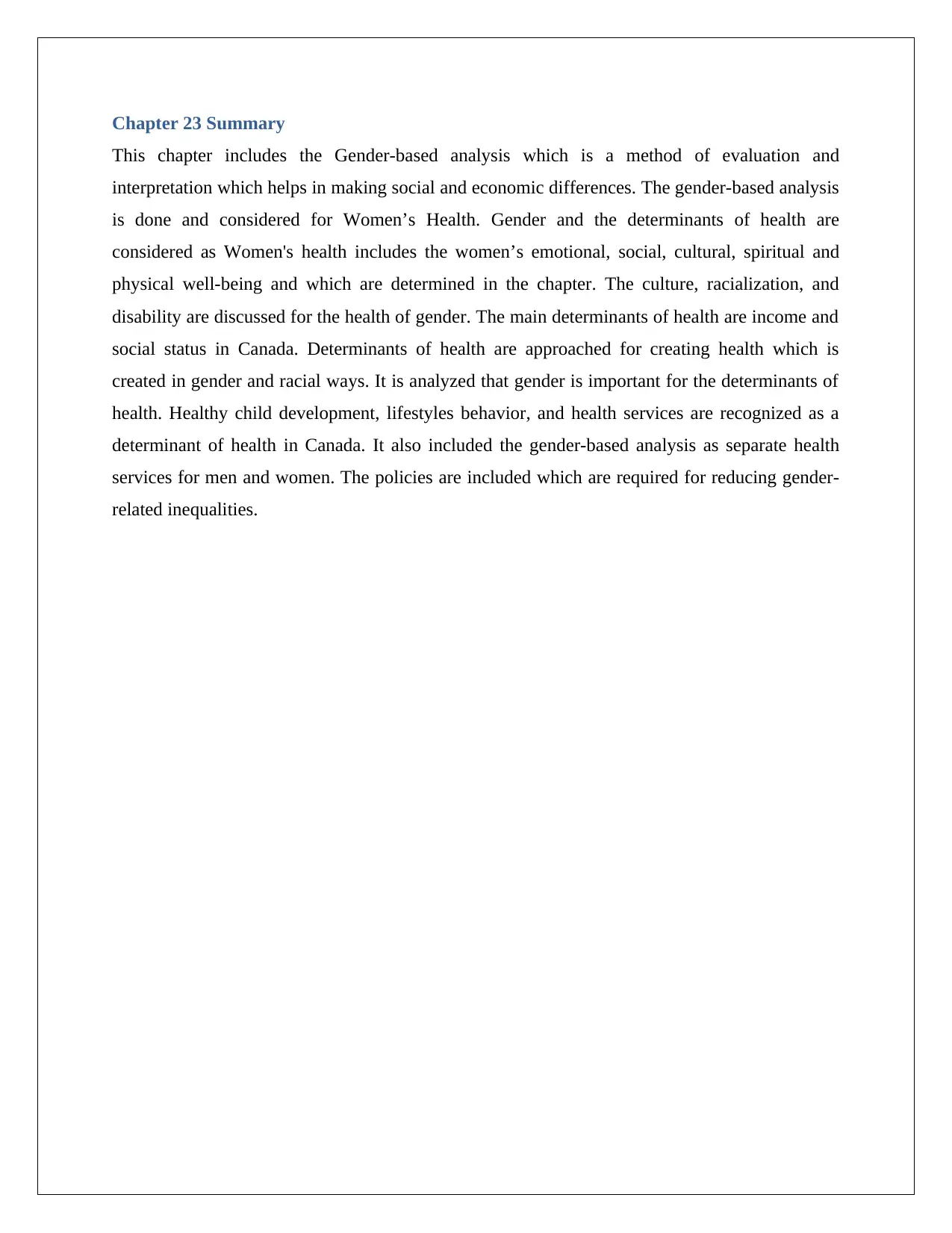Analysis of Social Determinants in Indigenous Health Report
VerifiedAdded on 2022/08/22
|3
|562
|13
Report
AI Summary
This report provides a comprehensive overview of the social determinants of health impacting Indigenous communities in Canada, drawing from multiple chapters. It explores the impact of racism, employment, education, and housing on Indigenous health outcomes, emphasizing the importance of cultural and linguistic diversity. The report examines healthcare access inequities, including the influence of geographic factors and the impact of systemic violence on mental health. It also incorporates a gender-based analysis, highlighting the role of gender in health determinants and the need for policies that address gender-related inequalities. The report covers issues like the legacy of residential schools and the need for policy changes, including the creation of an Indigenous parliament. The report covers the analysis on the importance of social and economic differences and also describes the gender-based analysis for Women’s Health and also includes the gender-based analysis as separate health services for men and women.
1 out of 3










![[object Object]](/_next/static/media/star-bottom.7253800d.svg)